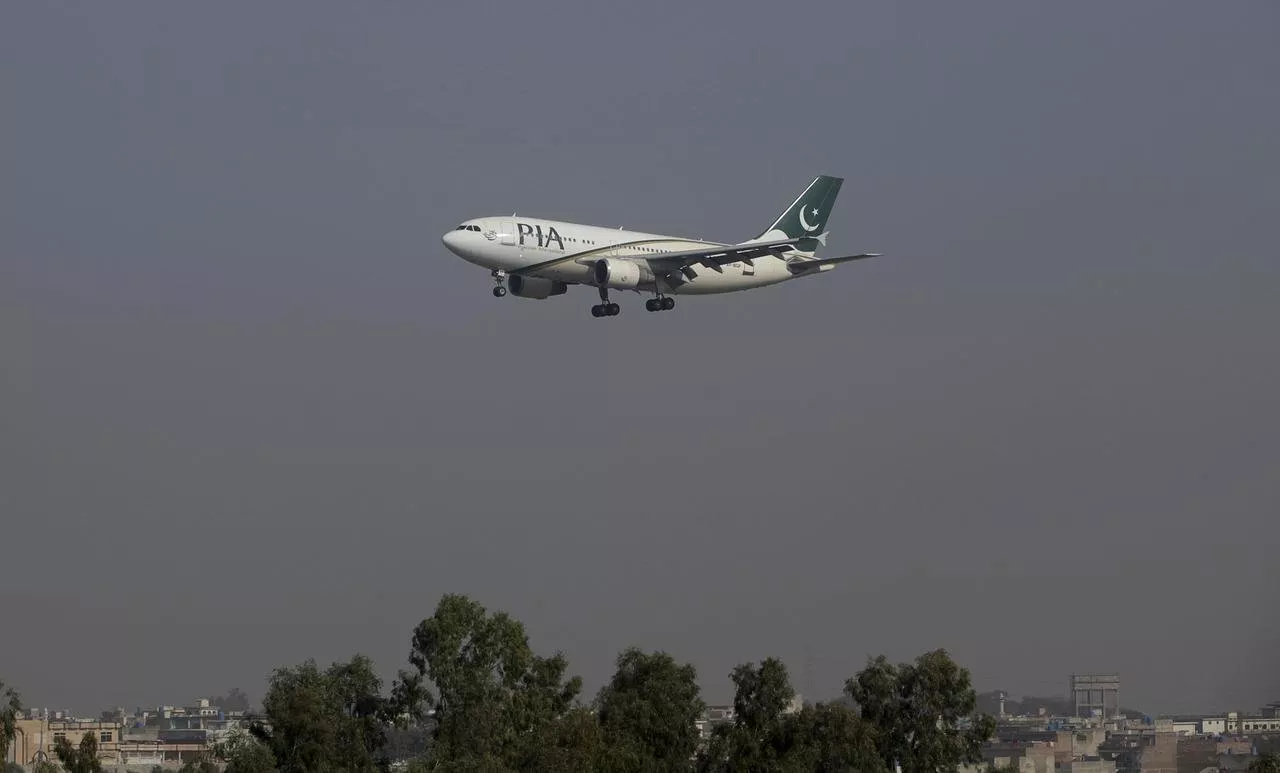Next phase of special flights starts today: FM
Nine flights will bring back 2,000 people, Qureshi informs special panel
ISLAMABAD: The foreign minister on Monday informed the parliamentary committee on novel coronavirus crisis that next phase of special flights to bring back stranded Pakistanis will start from Tuesday (today).“Nine flights will bring 2,000 people. Flights in next phase will arrive in Lahore, Karachi, Multan, Peshawar and Faisalabad,” he told the ‘Special Committee on Affectees of Coronavirus (COVID-19)’.
The committee, under the chairmanship of National Assembly Speaker Asad Qaiser, discussed progress reports by the departments concerned on the resolution of problems of corona affected persons.
The meeting was attended by Foreign Minister Shah Mahmood Qureshi, Aviation Minister Ghulam Sarwar, Religious Affairs Minister Noorul Haq Qadri, State Minister for SAFRON Shehryar Afridi and others.
The total number of Pakistanis stranded is 39,748 with the bulk in Middle Eastern countries, as per the data collected by the Foreign Office through its missions abroad.
“Number of Pakistanis belonging to Tableeghi Jamat is 2,248 stranded abroad,” FM Qureshi said, adding that the government had arranged special flights to bring stranded Pakistanis back home, quarantined and later sent home after receipt of tests reports.
He said the government is committed to bringing all the stranded Pakistanis back through special flights. The aviation and religious affairs ministers extended their support in the fight against the coronavirus.
Just like other countries, the government has also dealt with the issue of handling stranded Pakistanis overseas.
“Only the Islamabad Airport is operational and catering the incoming and outgoing passenger traffic through special flight operation,” the Aviation Division secretary said. The division has made arrangements through the PIA to take and bring the stranded Pakistanis and foreign nationals.
In the next phase other major airports would be made operational, he added.
The committee discussed the problems of the Tableeghi Jamaat and pilgrims with their representatives, collected certified data and shared it with the departments concerned.
The SAFRON minister, who is also the convener of the sub-committee of the special committee, presented a report related to the data of Pakistanis stranded abroad.
Afridi said that representatives of Tableeghi Jamaat and pilgrims were taken on board and their “verified data” was collected. The data of Pakistanis stranded abroad and prisoners released by Oman and the UAE was also acquired from the Ministry of Foreign Affairs, he added.
He informed that the sub-committee was in contact with relevant quarters and would oversee the safe return of everyone to their respective destinations.
Discussing the report of the earlier directions of the committee, the interior ministry secretary apprised the committee that the ministry had directed the deputy commissioners of the districts concerned to make logistic arrangements for the people, who have tested negative to take them safely back to their hometowns as per the SoPs developed by the Health Department and the provinces.
The National Institute of Health (NIH) executive director said that the NIH was conducting tests currently with the capacity of 13,000 to 14,000, which would be enhanced to 30,000 tests per day in the next few days. He added that presently 41 labs were conducting corona tests that would also be increased.
“The tests conducted by the NIH are of world-class standard and reports of the tests are delivered within 24 to 48 hours,” he said. He shared that the NIH labs were overloaded, however, it was being handled “taking it as a national cause”.
Discussing the issues, the committee chairman said that in view of the news of the difficulties faced by Pakistanis abroad, he considered it appropriate to form a special committee that would take stock of the situation and find a solution to their problems.
Qaiser said: “The most important issue is maintaining an atmosphere of communal harmony and mutual trust and respect at the community level.” He said that he had contacted all the scholars of all schools of thought and asked them for guidance, who had assured their all-out support.
The speaker said that religious affairs minister had been entrusted with the task of delivering the message of the Ulema through print, electronic and social media that the coronavirus was a global issue and a disease that was to be tackled together. “It was not due to any one individual or group, nor can it be solved at the individual level,” said Qaiser.


COMMENTS
Comments are moderated and generally will be posted if they are on-topic and not abusive.
For more information, please see our Comments FAQ